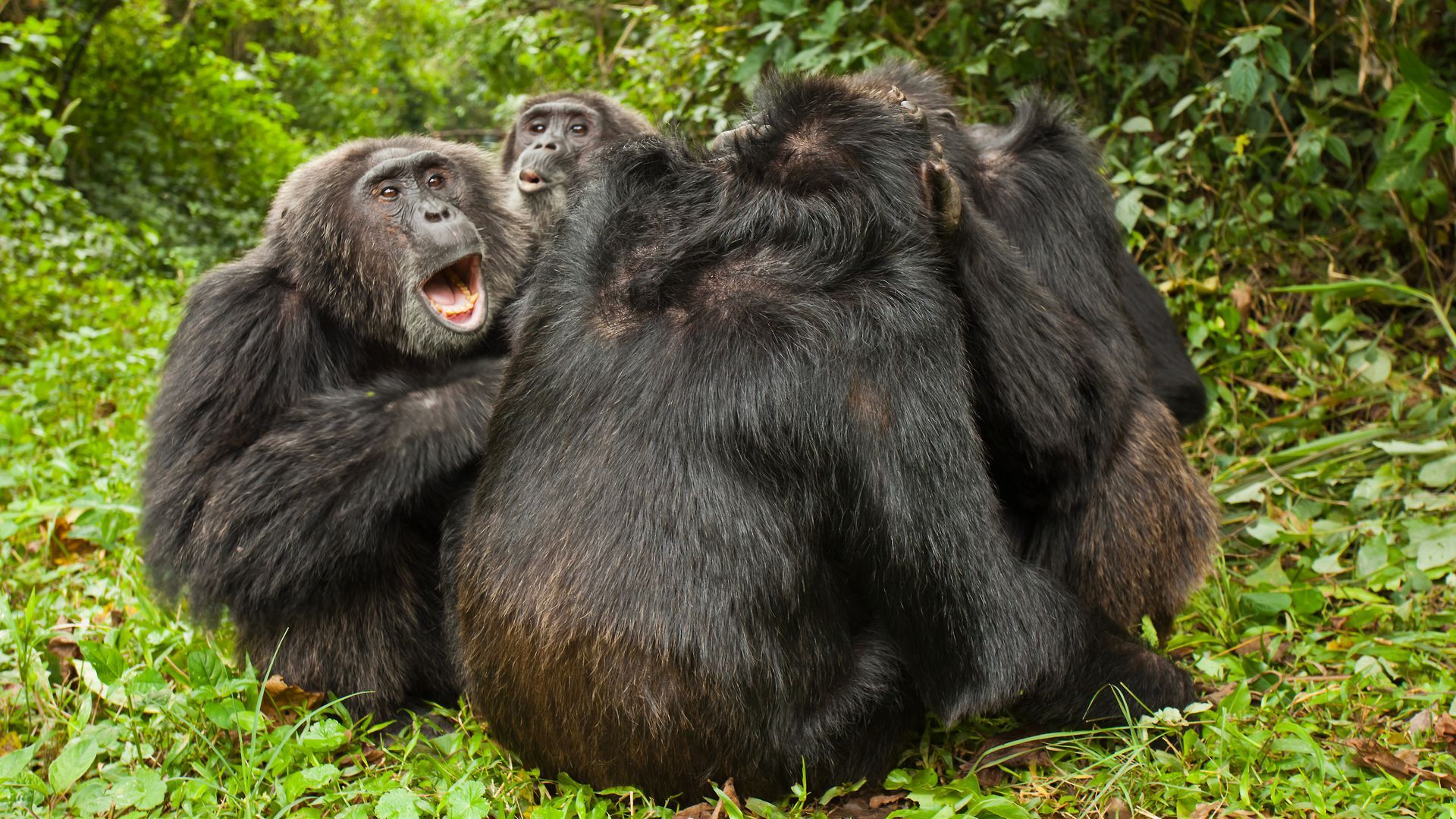Study: Older chimpanzees, like humans, favor a few close friends
Add Axios as your preferred source to
see more of our stories on Google.

Friends groom together. Photo: Ronan Donovan
In our old age, humans tend to invest in fewer but more positive relationships. A new study of wild chimpanzees finds they seem to do the same.
The big picture: Prioritizing relationships as we age is thought to be tied to our unique awareness of our mortality, but the new findings suggest "social selectivity can emerge in the absence of complex future-oriented cognition," the authors write today in the journal Science.
What they did: Alexandra Rosati of the University of Michigan and colleagues used data from a two-decade-long study of wild chimpanzees in Uganda's Kibale National Park.
- They looked at the interactions of 21 male chimpanzees — which socialize more often — ranging in age from 15 to 58 years old, and categorized them as "mutual friends," "one-sided friends" or "non friends."
What they found: The number of mutual friends a chimpanzee had increased with age while their one-sided friendships decreased.
- By studying grooming habits, they report "chimpanzees invested more, and invested more equitably, in mutual relationships than one-sided ones, and older adults had more mutual friendships than younger adults did."
- They also found the chimpanzees had fewer aggressive interactions as they got older.
How it works: Our perspective on our lives may drive our social behavior later in life, but the new findings suggest there may be other aging-related factors — for us and other species without the awareness of mortality.
- In chimpanzees, their emotions become more stable as they age or they may be maximizing their chances to mate, even in old age, the NYT's James Gorman writes.
- The findings "'should make us think twice' about the roots of some human behaviors," Ian Gilby, a behavioral ecologist at Arizona State University, Tempe, who was not involved in the study, told Science's Lucy Hicks.
